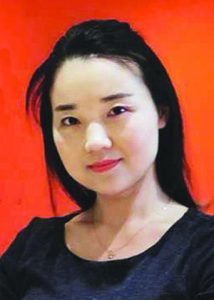Part 6 in a series on COVID-19's Impact in China
Editor’s note: In the sixth part of their continuing series, Alice Wang and Ed Rowland look at the the carefully orchestrated process Alibaba Health used in returning to the workplace. It included numerous protocols and a lottery deciding the first returnees. Strict rules are in place and a new “normal” now exists.
Part one is available here. Part two is available here. Part three is available here. Part four is available here. Part five is available here.
Italian tenor Andrea Bocelli’s Easter concert from an empty Duomo di Milano was live-streamed to millions of people around the world during the lockdown. But for one Alibaba Health executive, Sarah Brightman’s Time to Say Goodbye echoed louder: a goodbye to COVID-19, not a full good bye, but at least a start for 2020 that has witnessed too many goodbyes.

Alice Wang
This was a welcomed farewell. Symbolically, it seemed that nature was also speaking; the willow catkins– long, tube-shaped flower clusters common in the Hangzhou area—were fluttering in the sun marking the imminent arrival of new leaves.
From the outset of Covid-19 outbreak, Alibaba Health employees were requested to report their daily health condition on a mini App in DingTalk, the Alibaba working system. The comprehensive report included real time location, living conditions and any possible contacts of suspected COVID-19 infected people. What appeared to be a simple health registration app monitoring employee wellbeing was actually part of Alibaba’s longer term plan enabling a return to the workplace. The mini app was published and in use months before China turned the COVID-19 corner.
On Feb 24, after 14 days of mini app tracking and without the slightest chance of any contact with suspect cases, Alice was among the first Alibaba Health employees granted permission to return to the Hangzhou office, Alibaba’s headquarters. The carefully crafted protocols for the return included:
- A phased return. A return-to-the office lottery was conducted among employees deemed safe. In Week One, only 10% of employees were permitted to the office. This insured a safe density for everyone. Alice was in the first 10% cohort.
- Review of transport to work. Transport to the Hangzhou office was scrutinized. If returning to Hangzhou from another city, employees drove themselves. Contact with public transportation would lead to another 14 days quarantine.
- Disinfecting the office. The main areas of the office are disinfected daily and the entire building undergoes a thorough disinfection on weekends.

Ed Rowland
Every Alibaba Health employee participates in a very comprehensive protection regime:
- QR Code = Green. The government’s global QR code system is strictly enforced. All employees must show a Green QR code. (Green for healthy individuals permitting free travel, Yellow requiring 7 days quarantine, and Red for 14 days quarantine). A normal temperature is also an access threshold.
- Masks required. All employees receive 2 masks daily upon entering the Alibaba park.
- Lunch hours in the company canteen are staggered to avoid the usual peak crowds. Everyone eats at a separate table. No more lunch time gossip.
- No face-to-face meetings. Unprecedented even for a digital company like Alibaba.
- Elevators. Elevators equipped with liquid soap and tissue eliminating contact with floor buttons.
- Constant monitoring. Administration Department Staff patrol the building checking body temperatures and monitoring mask wearing.
As the weeks passed, the phased careful return seems to be working. The system granted more permissions to return to the Alibaba complex.park. Familiar faces began to reappear. Still, some returns were delayed; one colleague was held back another 14 days as his roommate had returned from another city on public transportation. His QR code had turned Red.
In mid-April Alibaba arranged for a company-only bus shuttle from Hangzhou to Shanghai enabling employees to avoid public transportation. The 125 mile trip was formerly completed on a high speed train.
In spite of the very strict limitations, Alibaba Health morale improved as more people returned to the office, confirming their healthy status. Many Chinese enterprises are managing the returning-to-work process in similar ways. Commercial use data for electricity and water showed that about 95% enterprises in Wuhan area of Zhejiang Province had returned to work by March 6, 42 days after the lockdown.
Other aspects of life are returning to normal; even square dancing, popular among grannies and a nuisance for young men, has restarted. Masks are now the norm.
Looking back on the 90 days from the start of COVID-19, worry, fright and anxiety touched everyone. Irresponsible people were called out and the lockdown caused massive self-reflection. There was a constant struggle between hope and collective efforts vs. sadness and disappointment.
At the conclusion of his concert, Andrea Bocelli walked out of the Duomo di Milano and performed Amazing Grace. His voice still echoes, reminding all that we have responsibilities that allow hope to flourish.
Alice Wang is a consumer healthcare professional with deep knowledge of the Chinese e-commerce, the world’s largest internet market. Her team provide clients up-to-the-minute information on the Chinese E-commerce market, and customized service to the world’s largest market.
Ed Rowland is the principal of Rowland Global LLC (www.rowland-global.com) and believes in the promise of global business and supports companies in their strategy, tactics and execution of international growth initiatives.




You must be logged in to post a comment Login